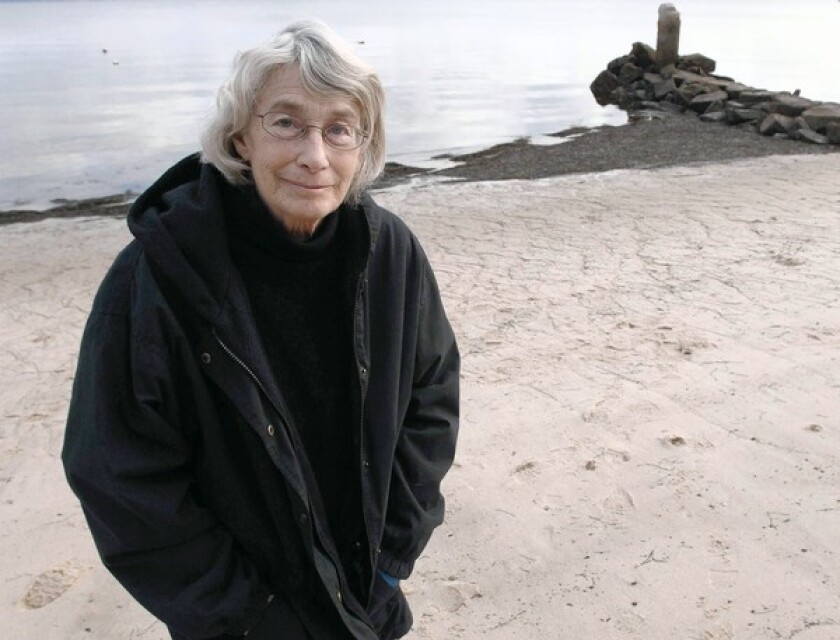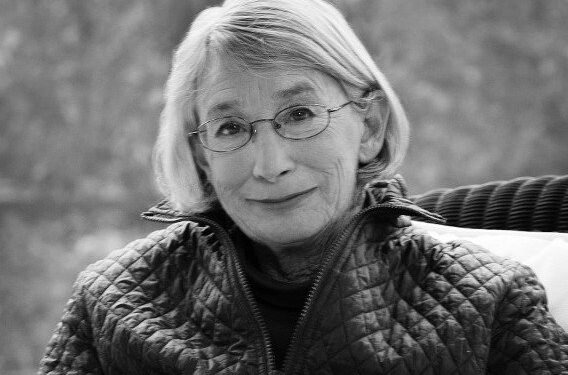Facts about Mary Oliver Of American Poet
Mary Oliver, one of America’s most beloved and celebrated poets, left an her profound and approachable writings that delve into the relationship between nature, the human experience, and the divine, leaving an enduring impression on the literary world. Mary Jane Oliver was born in Maple Heights, Ohio, on September 10, 1935. Her family was somewhat dysfunctional, and she was inspired and found comfort in nature at a young age. Oliver won multiple awards over her illustrious career, including the Pulitzer Prize for Poetry, and her poetry is still beloved by people around.
Early Life:
Mary Oliver’s childhood was marked by a turbulent family life. Edward William Oliver and Helen M. Vlasak, her parents, were both educators. Oliver subsequently disclosed that her father was violent, and that the difficulties of growing up in a challenging home setting influenced her early years. Despite these challenges, she turned to poetry for comfort in both reading and writing. She developed a strong bond with nature when she was a small child and began to explore the surrounding fields and woods, which would later become a major motif in her paintings.

Education and Early Career:
Oliver attended Ohio State University but found the traditional academic setting restrictive. She did not complete her degree, choosing instead to explore her passion for poetry independently. In her early twenties, she also developed an interest in the work of American poet Edna St. Vincent Millay, whose influence can be seen in Oliver’s early writing.
Also Read-
- Facts about Adrienne Rich Of American Poet
- Facts about Theodore Huebner Roethke Of American Poet
- Facts about Ben Jonson Of English Poet
Oliver’s first collection, “No Voyage and Other Poems,” was published in 1963, but it wasn’t until the 1980s that she gained widespread recognition. During these intervening years, she struggled financially and emotionally, working various jobs to support herself. Her poetry during this period reflects a deep introspection and a keen observation of the natural world.
- No Voyage and Other Poems (1963): Oliver’s debut collection, which includes early works that lay the foundation for her exploration of nature and the human experience.
- The River Styx, Ohio, and Other Poems (1972): This collection reflects Oliver’s evolving poetic style and her deepening connection to nature.
- American Primitive (1983): A pivotal work that won the Pulitzer Prize for Poetry in 1984. This collection solidified Oliver’s reputation, showcasing her unique voice and the themes that would come to define her work, including a profound connection to the natural world.
- Dream Work (1986): This collection continues Oliver’s exploration of nature and spirituality, delving into themes of love, loss, and the search for meaning.
- House of Light (1990): Another highly praised collection that features poems exploring the intersection of the physical and metaphysical, with a particular emphasis on the transformative power of nature.
- New and Selected Poems (1992): This anthology brings together a curated selection of Oliver’s poems, offering both new works and a retrospective of her earlier career. It won the National Book Award.
- West Wind: Poems and Prose Poems (1997): Oliver’s exploration of the poetic form extends to prose poems in this collection, providing readers with a varied and rich reading experience.
- The Leaf and the Cloud (2000): In this collection, Oliver continues her examination of the natural world, exploring its mysteries and offering reflections on life’s transient nature.
- What Do We Know (2002): This work features a selection of poems that further demonstrate Oliver’s ability to distill complex emotions and experiences into accessible and poignant verse.
- Thirst (2006): A deeply introspective collection that addresses themes of spirituality, longing, and the quest for a deeper connection with the divine. This collection includes the widely admired poem “Messenger.”
- Red Bird (2008): Oliver’s exploration of nature and human existence continues in this collection, which includes poems that celebrate the beauty of the world and contemplate the challenges of living.
- A Thousand Mornings (2012): Published later in her career, this collection reflects on the beauty of ordinary moments and the cyclical nature of life, showcasing Oliver’s ability to find profound meaning in the everyday.
Death:
Mary Oliver passed away on January 17, 2019, at the age of 83. Her death was attributed to lymphoma, a type of cancer that affects the lymphatic system. Oliver had been a private person throughout her life, and news of her death was met with an outpouring of grief from readers, admirers, and fellow poets around the world.
Legacy:
- Nature Poetry and Observation: Mary Oliver is widely celebrated for her deep connection to the natural world. Her poetry serves as a bridge between human experience and the beauty, wonder, and mysteries of nature. Through vivid and evocative language, Oliver invites readers to see the world through a poet’s eyes, fostering a renewed appreciation for the environment.
- Accessibility and Universality: One of Oliver’s greatest strengths lies in her ability to make poetry accessible to a broad audience. Her language is clear, her themes are universal, and her poems often resonate with readers on a personal level. This accessibility has contributed to her widespread popularity and the incorporation of her work into various educational curricula.
- Spiritual Exploration: Oliver’s poetry often delves into spiritual themes, exploring the sacred in the ordinary and the divine in the natural world. Her contemplative verses invite readers to reflect on their own spiritual journeys, transcending religious boundaries and appealing to a diverse range of individuals seeking meaning and connection.
- Mindfulness and Presence: A recurring theme in Oliver’s work is the importance of mindfulness and being present in the moment. Through her poetry, she encourages readers to pay attention, to be fully engaged with their surroundings, and to find beauty and significance in the small details of life. This emphasis on mindfulness has resonated deeply with those seeking a more intentional and aware existence.
- Literary Recognition: Mary Oliver received numerous awards and honors during her lifetime, including the Pulitzer Prize for Poetry for “American Primitive” in 1984 and the National Book Award for Poetry for “New and Selected Poems” in 1992. These accolades solidified her position as a literary force and brought her work to a wider audience.
- Influence on Contemporary Poetry: Oliver’s distinctive voice and style have influenced many contemporary poets. Her ability to balance simplicity with profound insight, as well as her thematic focus on nature and the human spirit, has left an indelible mark on the landscape of American poetry.
- Cultural Impact: Mary Oliver’s impact extends beyond the literary world. Her poems have been quoted in a variety of contexts, from graduation speeches to social media posts, demonstrating their resonance in popular culture. Lines from her poems have become touchstones for individuals seeking inspiration and solace.
- Posthumous Publications: Even after her death, Oliver’s influence continues to grow with the publication of posthumous works. Collections such as “Devotions” (2017) gather some of her best-loved poems, ensuring that new generations of readers can discover and appreciate her contributions to poetry.
TIMELINE
- 1935: Mary Jane Oliver is born on September 10 in Maple Heights, Ohio, to Edward William Oliver and Helen M. Vlasak.
- 1953: Oliver begins attending Ohio State University but leaves before completing her degree due to a dissatisfaction with the academic environment.
- 1963: Publishes her first poetry collection, “No Voyage and Other Poems,” marking the beginning of her career as a published poet.
- 1972: Releases “The River Styx, Ohio, and Other Poems,” continuing to explore themes of nature and human experience.
- 1983: Achieves a breakthrough with the publication of “American Primitive,” which wins the Pulitzer Prize for Poetry in 1984. This collection cements her reputation and introduces her distinctive voice to a wider audience.
- 1986: Publishes “Dream Work,” another critically acclaimed collection that explores themes of love, spirituality, and the interconnectedness of life.
- 1990: Releases “House of Light,” further solidifying her position as a leading contemporary poet.
- 1992: Wins the National Book Award for Poetry for “New and Selected Poems,” a collection that spans her career and includes both new and previously published works.
- 1998: Receives the Lannan Literary Award for lifetime achievement.
- 2000: Publishes “The Leaf and the Cloud,” continuing her exploration of nature and the human experience.
- 2002: Releases “What Do We Know,” a collection that reflects Oliver’s ongoing commitment to exploring the mysteries of existence.
- 2006: Publishes “Thirst,” a deeply introspective collection that addresses themes of spirituality, longing, and the quest for a deeper connection with the divine.
- 2008: Releases “Red Bird,” continuing her exploration of nature and the human condition.
- 2012: Publishes “A Thousand Mornings,” a collection that reflects on the beauty of ordinary moments and the cyclical nature of life.
- 2017: “Devotions,” a compilation of Mary Oliver’s best-loved poems, is published, offering a comprehensive overview of her poetic legacy.
- 2019: Mary Oliver passes away on January 17 at the age of 83, leaving behind a rich legacy of poetry that continues to resonate with readers around the world.
















